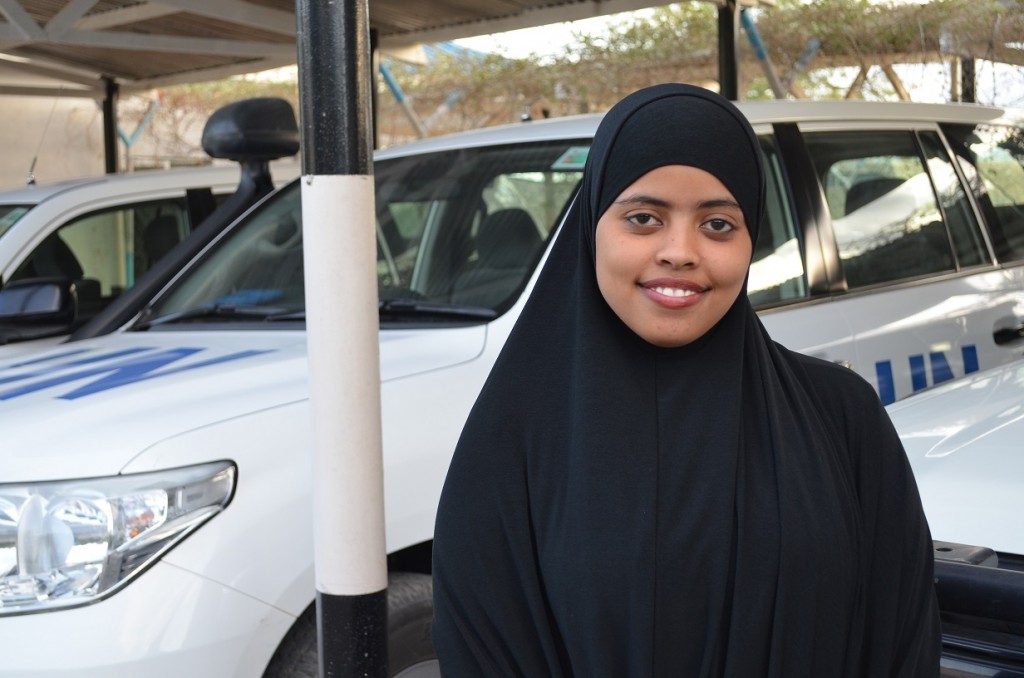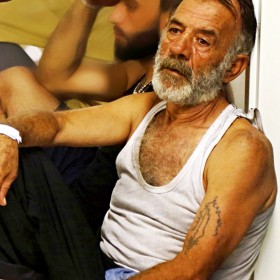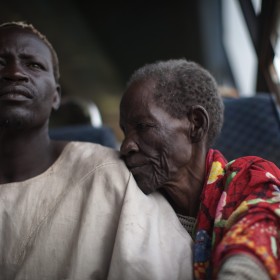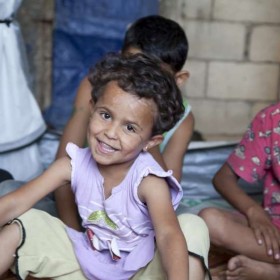Shamim’s Story, Kenya

Photo by UNHCR/2014
Refugees have always been part of my life. I spent some of my childhood in Garissa, a town close to the Dadaab refugee camps. The majority of the refugees in this part of Kenya are from Somalia. As a Kenyan of Somali ethnicity, I share their language and culture. Ever since I was a child, I have witnessed the struggle of refugees for freedom and a normal life.
Now, as a field associate in one of the five Dadaab refugee camps, I can contribute to making people’s lives easier. Every day, refugees come to see me in the UNHCR field office and to discuss their problems. Small decisions have a huge impact on the refugee community. Being a Somali speaker helps me to interact easily with the refugees and to come up with solutions together. However, in a protracted situation such as Dadaab, where people have to stay in camps for decades, we will unfortunately never be able to create a ‘normal life’ for them and we cannot solve all their problems. Sometimes, people just need a good listener and they come up with their own ways of dealing with the situation.

Photo by UNHCR/2014
I am fascinated by the way people have created businesses inside the camps and try to make the best out of their life. However, some people depend on our help because they are old, sick or single mothers. We try to identify those most vulnerable and to provide them with shelter and services. We also do our best to make sure refugees in the camps live in safety. But still, victims of rape often come to see me.
The stories I hear and this kind of job in general affect me as a person. This was even more the case in the beginning of my work for UNHCR. In 2011, thousands of refugees arrived every day due to drought and famine in Somalia. I had just finished school and had to learn how to deal with this big influx of people in need. Many of them were injured, sick or suffered severe malnourishment. In my first 1.5 years with UNHCR, I slept in a shared tent and work was quite overwhelming.
At the same time, being a woman in this job is not easy. People often ask me: “You are 25 years old. Why are you not married?” I frequently coordinate meetings with the refugee leaders and the host community. The majority of them are male and older than me. I had to learn that as a female humanitarian, you always have to be extraordinary in order to convince people that you are the right person for the job.
However, I love serving refugees so much that I do not mind that the living and working conditions are not like in big cities and that being a woman in this environment can be quite challenging. When I go to work every day, I know again why I am here.
Shamim Abubakar Degey
Field Associate
Dagahaley Camp, Dadaab, Kenya










